For those of us in eating disorder recovery, the holidays can be a challenging time. The holiday season tends to be full of many food-focused events, parties, group dinners, and traveling that disrupts our daily routine. Some of us may also feel increased pressure to please holiday guests or hosts, or to ‘look’ a certain way for these events. All of this can be anxiety-provoking for anybody, particularly so for those of us in eating disorder recovery.
We understand the holidays can be challenging, and we can also strive to make the holiday as enjoyable as possible. This doesn’t mean we have to be 100% happy and completely enjoy every second of our holiday festivities – this may not be realistic for some of us. What we can do, however, is be mindful of our feelings about the upcoming holiday season and build ourselves a supportive toolkit to help us navigate this exciting, and perhaps challenging, time.
In this blog, we discuss some tips for navigating eating disorder recovery during the holidays. We will take you through some steps that may help you feel more prepared for situations that may trigger your eating disorder. By preparing for these situations, we are more likely to cope with them in a way that is more helpful and safe than using disordered behaviors.
Make notes of what is worrying us most
This may be in a list format, a note on our phone, in a journal, or simply a mental list – whatever feels right for you.
The holidays bring up different feelings about many different scenarios and interactions for each of us. We may feel nervous about trying new foods, what we are going to wear to a holiday gathering, how to interact with people who are discussing their upcoming “diets” or “new year’s resolutions”, and how to cope with urges to partake in disordered eating behavior.
It is normal to experience worry about encountering these situations over the holidays. It is important, however, that we are prepared to cope with our discomfort in a way that supports our recovery. By making a list of what is worrying us the most, we can consider how we may feel if the situation we are fearing occurs. This will allow us to come up with helpful ways to cope with the situation.
Consider helpful coping skills to deal with the discomfort
How can we cope with discomfort over the holiday season? Here are some coping mechanisms that we may find helpful:
- Square Breathing
- Dive Reflex
- The 54321 Technique
- The Butterfly Hug
To learn more about each of these coping skills, check out our article on Coping Skills in Eating Disorder Recovery.
We may also want to consider asking a close family member or friend who will be at some of these events to help us out. We may choose to eat our food with them by our side or to have them act as a distraction from our discomfort for a short time while our anxiety passes.
Prepare to set boundaries
If we expect to be around many food-focused events and conversations over the course of the holiday season, it may be helpful to prepare boundaries. We do not have to entertain “diet culture talk” or discussions about eating “too much” at holiday dinners. We can set direct and specific boundaries to protect ourselves from engaging in conversations that may be harmful to our relationship with our bodies or food. Below are some examples of phrases we can keep handy in case “diet talk” or discussions of “over-indulgence” come up during the holidays:
“I am learning how to respect and appreciate my body for the way it is right now. I would appreciate it if we kept the table a “body talk free” zone.”
“Can we talk about something other than diets and New Years Resolutions? I would love to hear more about _________________.”
“I’m learning to give myself permission to eat right now and I would appreciate being able to practice doing so without fear of judgment.”
Using a gentle tone can help ensure that the individual we are speaking with does not feel attacked or the need to defend themselves. It may be helpful to practice saying these phrases gently with kindness and respect ahead of time so we feel prepared to use them if the time comes.
Have an exit plan
In some cases, we may simply need to remove ourselves from a triggering or uncomfortable situation instead of trying to set a boundary. This may mean simply taking a breather in a quiet place, such as the washroom or a spare bedroom, to take some time for ourselves. This may also mean leaving the gathering all together. If we are able to drive, it may be helpful to bring our own car so we are able to leave when we feel like doing so. It can also be helpful to remind ourselves that we are not obligated to stay at an event we are uncomfortable at simply because we feel it is expected of us. We are allowed to protect our peace and leave when we feel we are ready to.
Seek support from our treatment team
Our treatment team may also have some ideas of how we can best navigate our eating disorder recovery during recovery. It may be helpful to bring our list of scenarios that we’re worrying about to a treatment session to work through with one of our health care providers. Our treatment team can also help us build our holiday season toolkit.
If you are in need of support during the holiday season, Change Creates Change has slots open right now. You can book with us here.


